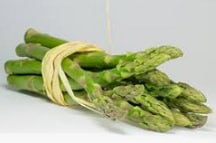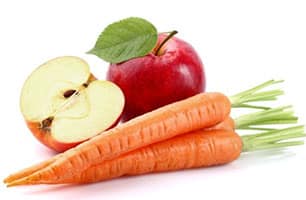 The adjective prebiotic is used to refer to that which results prior to the development of life on planet Earth . Beyond this definition given by the Royal Spanish Academy ( RAE ), the idea of prebiotic is usually used in the field of food .
The adjective prebiotic is used to refer to that which results prior to the development of life on planet Earth . Beyond this definition given by the Royal Spanish Academy ( RAE ), the idea of prebiotic is usually used in the field of food .
Prebiotic, in this framework, is understood to be a type of dietary fiber that helps increase the amount of beneficial bacteria in the intestine . It is a substrate that certain microorganisms present in the body take advantage of and thus later contribute to producing a benefit to the person's health .
It is important to remember that the set of bacteria that live in the intestine is called intestinal flora . Most of the members of this group fulfill positive functions for humans, collaborating with the absorption of nutrients, for example.
Prebiotics are substances that promote the development of these bacteria. Galactooligosaccharides , fructooligosaccharides and inulin , among others, are not absorbed by the intestine and resist gastric acidity, allowing the selective stimulation of certain strains of bacteria that are good for maintaining a healthy state.
It can be said that prebiotic foods are fertilizers that make healthy bacteria grow and multiply in the intestine. Since the body does not digest them, they pass through the digestive system becoming food for microbes.
Asparagus , onion , leek , garlic , oats , wheat , rope , and bananas are some of the foods that contain prebiotics. Therefore, in general, they should be part of the diet . In any case, a nutritionist is the one who has to indicate what is the best type of diet according to particular and individual characteristics.
Broadly speaking, we can say that a diet rich in tubers, fruits and vegetables is the best way to increase the presence of prebiotics in our diet . For different reasons, both cultural and individual, for taste or for specific health problems, not all people can eat any product, which is why it is sometimes necessary to consult with a specialist, as mentioned above.
Two of the most recommended products to include prebiotics are carrots and apples . Both are high in pectin, a fiber praised for its fermentation capacity and its positive effects on microbial diversity. It is recommended to cook them and eat them with their skin to obtain the most benefits.
 Among the tubers , sweet potato and potato stand out, although they have been two of the great enemies of weight loss diets for a long time because they contain rapidly absorbed carbohydrates in large quantities. With a different point of view, we can take advantage of this property to feed the beneficial bacteria in our body .
Among the tubers , sweet potato and potato stand out, although they have been two of the great enemies of weight loss diets for a long time because they contain rapidly absorbed carbohydrates in large quantities. With a different point of view, we can take advantage of this property to feed the beneficial bacteria in our body .
Other less popular foods are asparagus, leeks, artichokes and onions , all rich in a very beneficial fiber called fructan . Unlike apples and carrots, overcooking them can reduce their effects.
At this point, we can prepare a summary of the fundamental benefits that prebiotics provide us to maintain our general health:
* they stimulate our immune system, an action whose effects are incalculable since, in short, they make us "stronger" to face an endless number of diseases, both existing and future;
* They collaborate with the growth of certain bacteria in the intestinal microbiota (all the microorganisms in the intestine) that can benefit us;
* promote the absorption of magnesium and calcium, among other essential minerals for the proper functioning of our body;
* participate in the synthesis of some vitamins;
* are essential for intestinal regularity;
* reduce the chances of suffering from inflammatory bowel disease and colon cancer.
